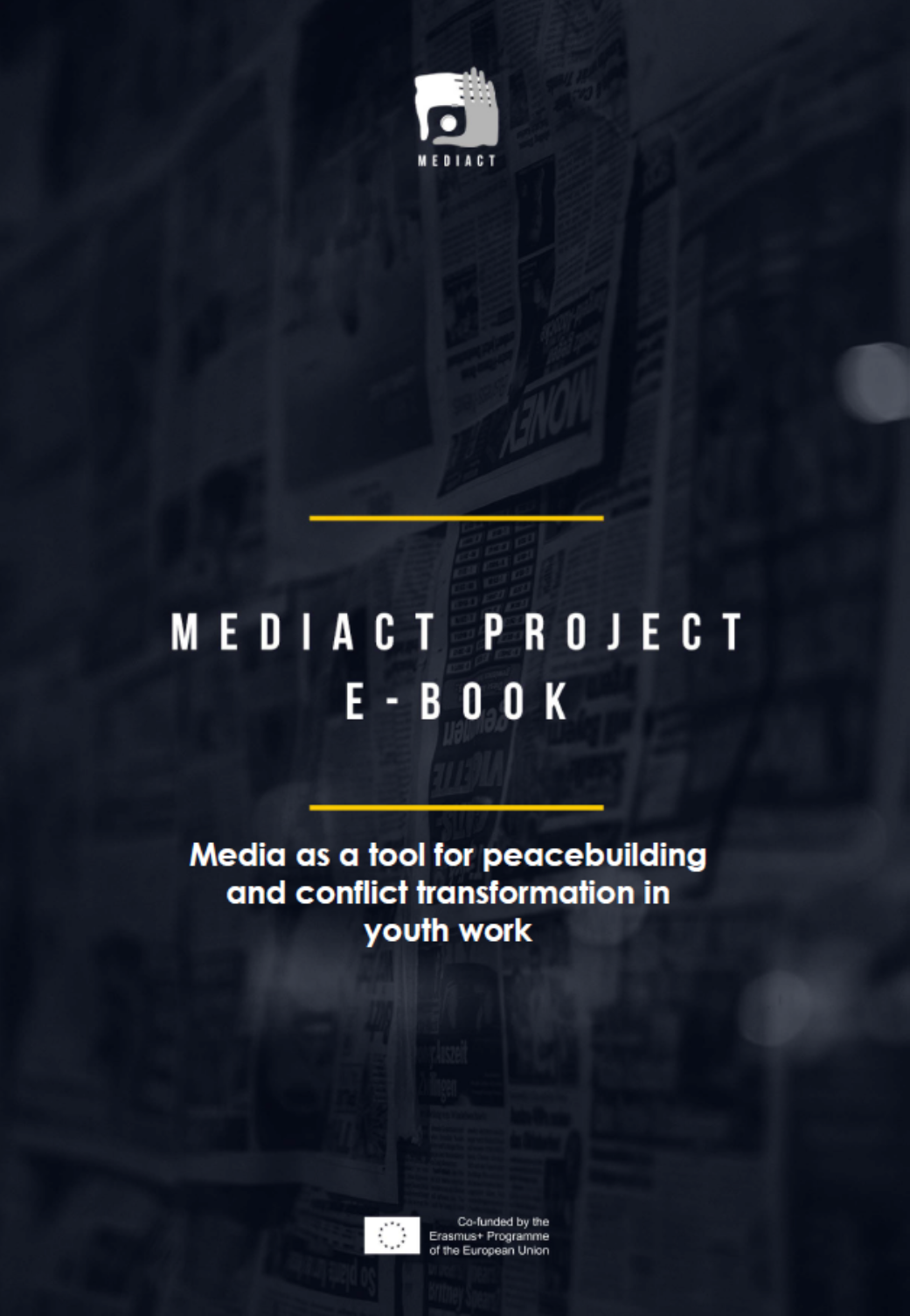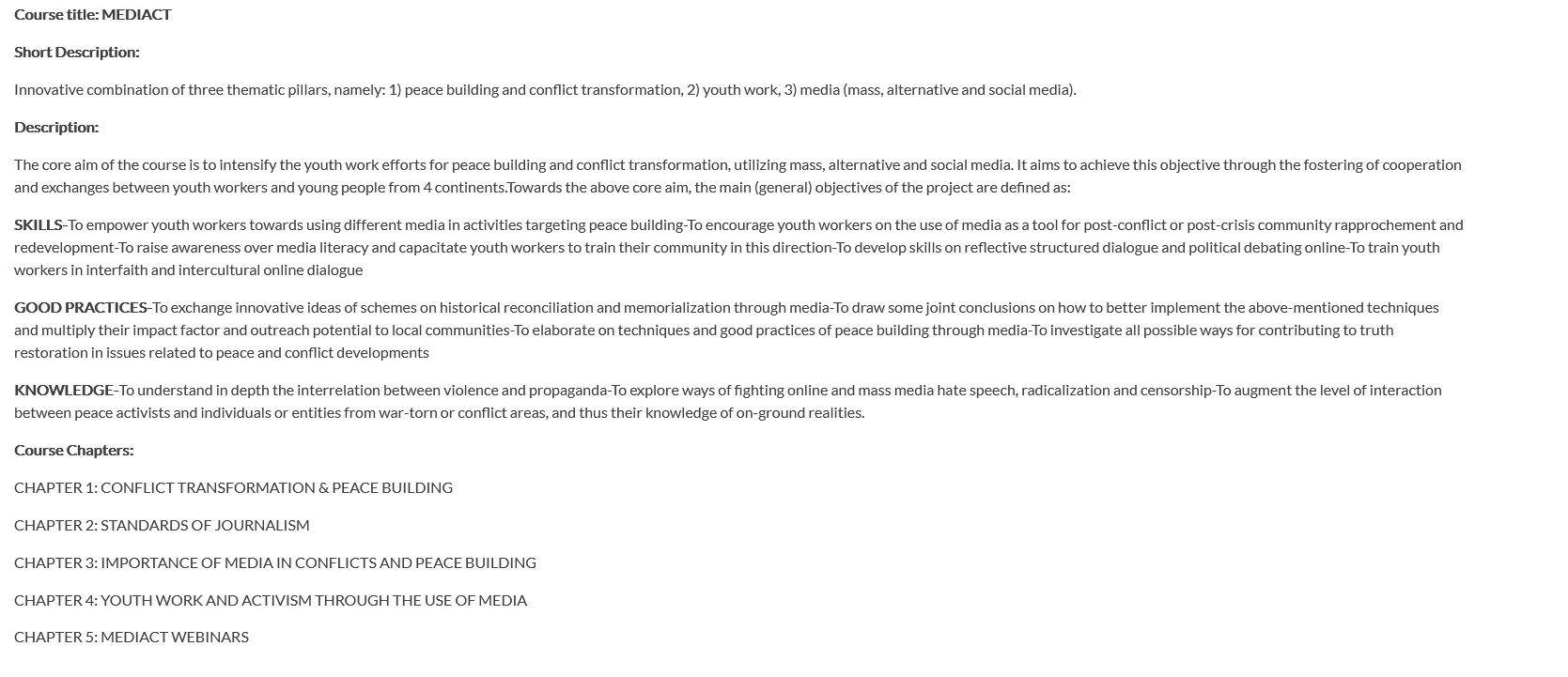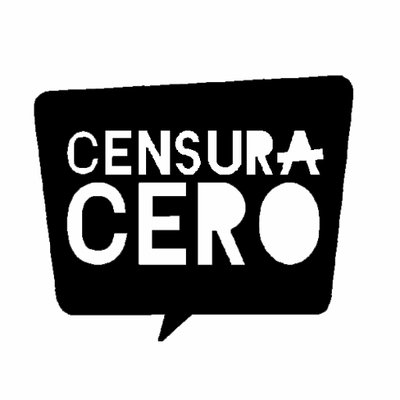The project MEDIACT is centered on the innovative combination of three thematic pillars, namely: 1) peace building and conflict transformation, 2) youth work, 3) media (mass, alternative and social media), as well as their interrelations. In practice, it aims to capacitate youth workers on utilizing media in order to foster peace in their communities and beyond, and tackle issues related to armed violence and conflict. Specifically, through the project?s scope, the consortium will focus on topics as reflective structured dialogue, media literacy, the correlation of violence, extremism, radicalization and propaganda, fake news and information warfare, censorship, hate speech, post-conflict community rapprochement. It will be implemented by seven partner organizations across four continents, who present a multitude of 1) institutional statuses (i.e. a University, a youth council, NGOs, a social enterprise, a platform of organizations, a research network), 2) levels of accessibility to media (and levels of censorship), and 3) regional or national conflict contexts (political violence, post-war reconciliation, gang guerillas, ethnical and geopolitical dispute, xenophobia-driven attacks).
Under the partners umbrella, there will be a plethora of on-ground collaborators within and across borders, coming from all three thematic pillars including youth-led media, peace forces, the civil society, educational institutes and high-level decision-makers. All activities are based on a variety of non-formal educational methodologies, including seminars, study visits, debates, as well as a certification course on community reporting. The outline of the project extends in 21 months, and is consisted of (a) three Mobility activities for Youth Workers (Europe, Central America, Sub-Saharan Africa), (b) Online activities including OER and ICT-based training (e-learning, webinars, e-Conferences), (c) Local Activities (research focus groups), (d) the dissemination phase (social media campaigns, simulation game, local workshops).A big part of the project concerns the production of new media and innovative intellectual outputs open to the public after its end.
Selectively, an e-Learning Platform hosting an e-Learning course and monthly webinars, will be developed and an e-Book will be compiled after 12-month research endeavors, containing good practices, case studies and guidelines for youth workers over the use of media as a tool for peace building and conflict transformation. Also, the partners? will maintain strong media presence and, as by definition of media, they intend to capitalize on the projects worldwide outreach potential.









